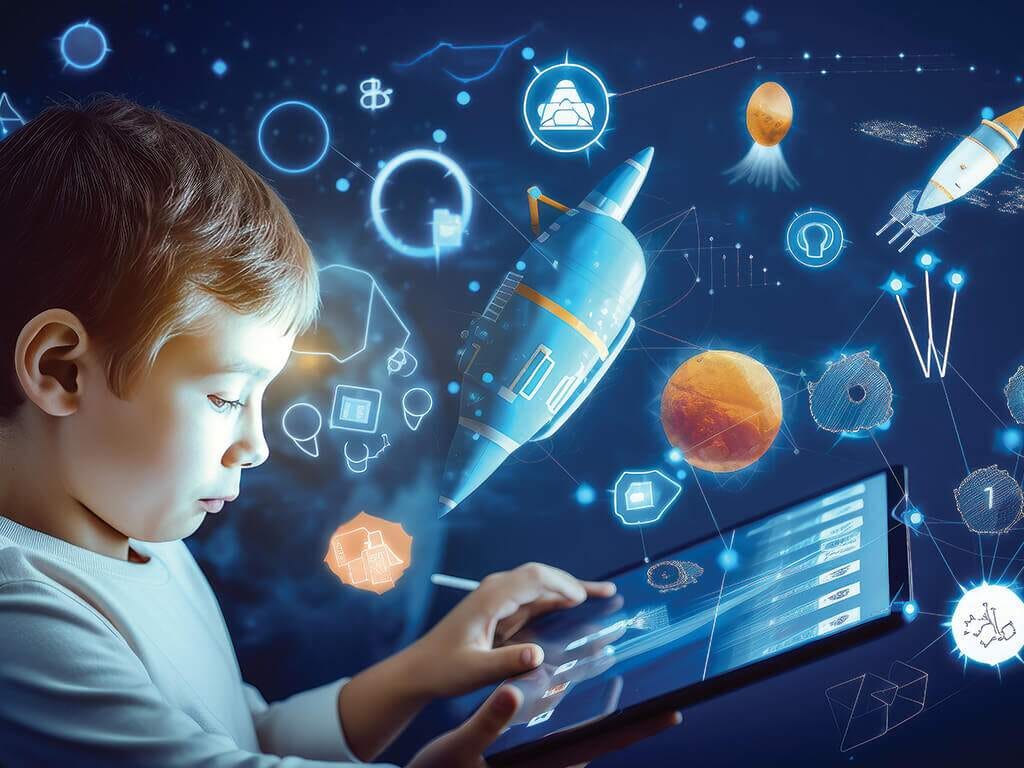Artificial Intelligence in 2025 – An Educational Course Ebook
Artificial Intelligence in 2025: An Educational Course Ebook
This ebook is designed as a **short course on Artificial Intelligence (AI)**, written for students, educators, and curious readers in 2025. It explains AI’s foundations, history, applications, benefits, challenges, and the ethical issues surrounding it — in a humanized, easy-to-understand style.
Chapter 1: Introduction to Artificial Intelligence
Artificial Intelligence (AI) is the science of creating machines that can perform tasks normally requiring human intelligence. These include problem-solving, pattern recognition, decision-making, and language understanding. In 2025, AI is no longer futuristic; it is part of daily life — from search engines and translation apps to medical diagnostics and self-driving cars.
Chapter 2: History and Evolution of AI
The idea of artificial intelligence began centuries ago with philosophers imagining “thinking machines.” Key moments include Alan Turing’s famous Turing Test in 1950, the Dartmouth Conference in 1956 (birth of AI as a field), AI winters of reduced funding, and the revival with big data and powerful computing in the 2000s. By the 2020s, AI became a cornerstone of modern technology.
Chapter 3: Branches of AI
- Machine Learning (ML): Algorithms that learn from data.
- Deep Learning: Neural networks that mimic the human brain.
- Natural Language Processing (NLP): Understanding and generating human language.
- Computer Vision: Interpreting images and video.
- Robotics: Intelligent machines performing physical tasks.
- Expert Systems: Decision-making programs based on human expertise.
Chapter 4: Technical Foundations
AI relies on mathematics (linear algebra, probability, statistics), computer science (algorithms, data structures), and neuroscience (modeling brain processes). A basic example: a machine learning model improves when fed more data — similar to how humans learn from experience.
Chapter 5: Applications of AI in 2025
Education
AI tutors, automated grading, and personalized content recommendation enhance learning experiences worldwide.
Healthcare
AI diagnoses diseases, analyzes medical images, and monitors patients through smart devices.
Business
Companies use AI for customer service, predictive analytics, and supply chain management.
Transportation
Self-driving cars, traffic management, and logistics optimization all rely on AI systems.
Science
AI assists in climate modeling, genetics, and space research, handling massive data beyond human capacity.
Chapter 6: Benefits of AI
- Increased efficiency and productivity.
- Accuracy in tasks like diagnosis and forecasting.
- Personalized learning, shopping, and healthcare.
- 24/7 availability in services such as chatbots.
- Cost savings and innovation potential.
Chapter 7: Challenges of AI
- Job displacement: Automation threatens some human roles.
- Bias: AI may reflect societal inequalities.
- Privacy: Data-driven AI raises security issues.
- Dependence: Overuse may weaken critical thinking.
- Environmental impact: AI training consumes large energy resources.
Chapter 8: Ethics in AI
AI ethics emphasizes fairness, accountability, transparency, and respect for human dignity. Regulations are being debated globally to ensure AI serves society rather than harms it.
Chapter 9: AI Tools in 2025
Commonly used AI tools include open-source frameworks such as TensorFlow and PyTorch. In education, platforms integrate AI tutors. Businesses use chatbots and analytics systems. In Africa, AI is being applied in agriculture (smart farming) and financial technology (mobile banking).
Chapter 10: Future of AI Beyond 2025
The next frontier is Artificial General Intelligence (AGI), where machines match human reasoning abilities. AI may revolutionize agriculture, energy, education, healthcare, and even space exploration.
Chapter 11: Practical Learning Module
Exercises for learners include:
- Using free datasets to train a simple AI model.
- Experimenting with chatbot platforms.
- Discussing ethical dilemmas in AI with peers.
Chapter 12: Conclusion & Further Reading
AI is both a powerful tool and a subject of study. By 2025, it has become deeply integrated into society. Understanding its history, applications, benefits, and risks equips learners to engage with it critically and responsibly.





Comments
Post a Comment